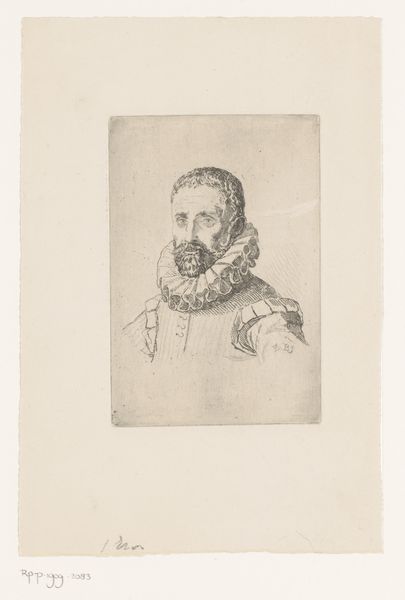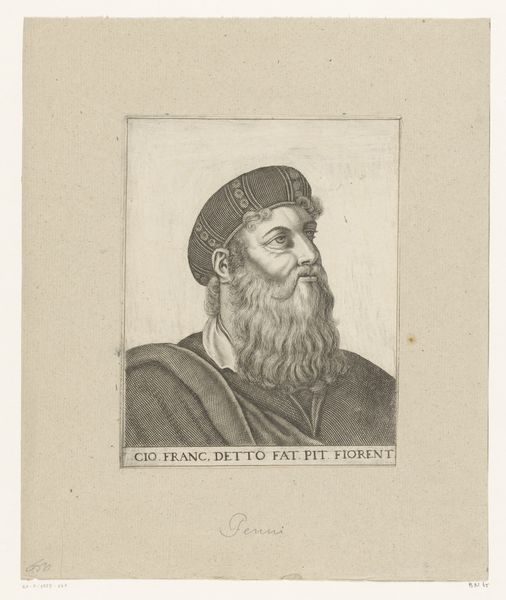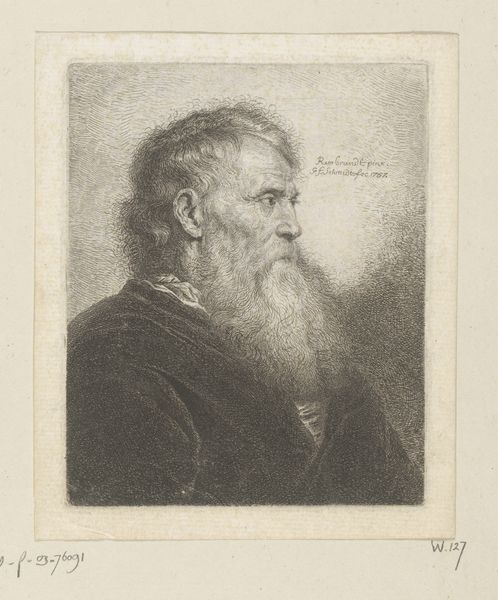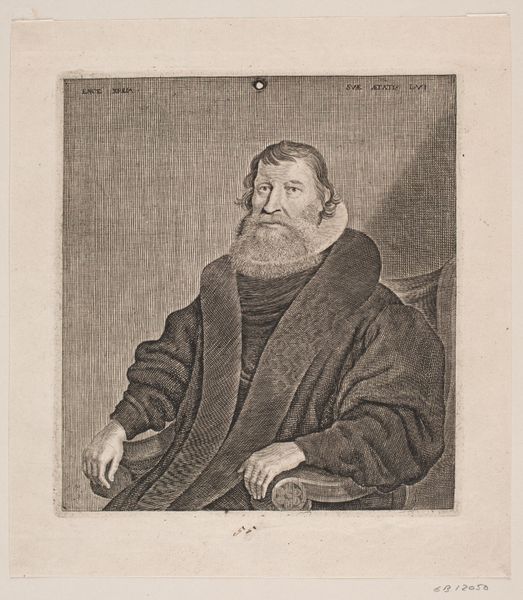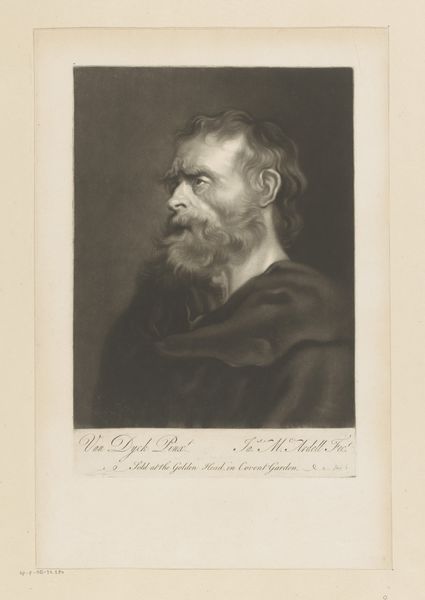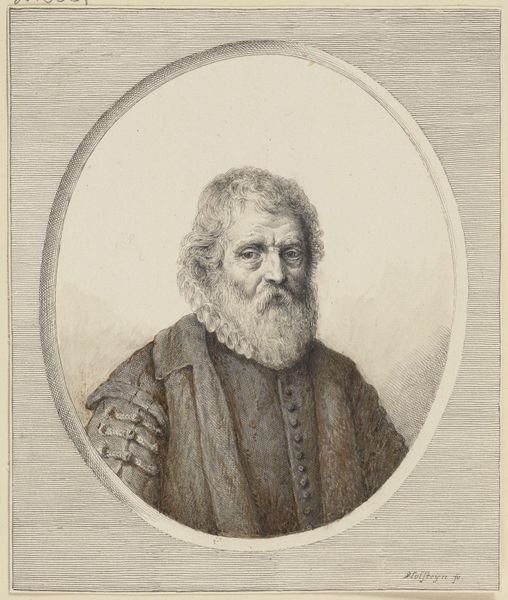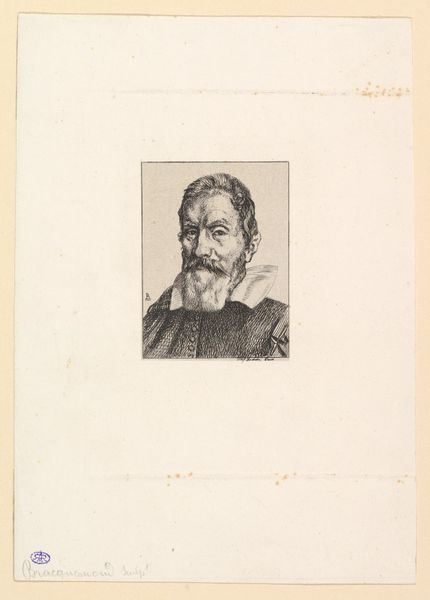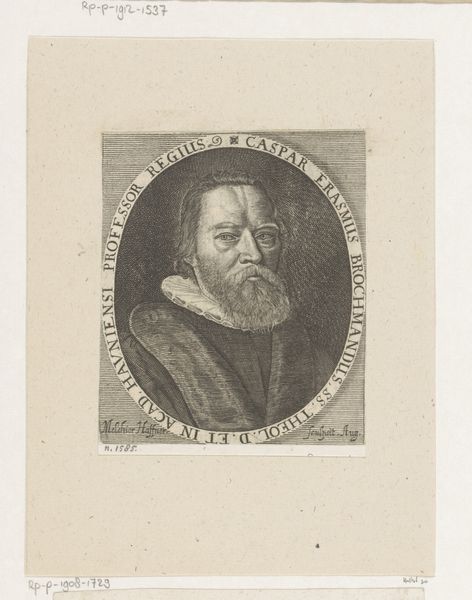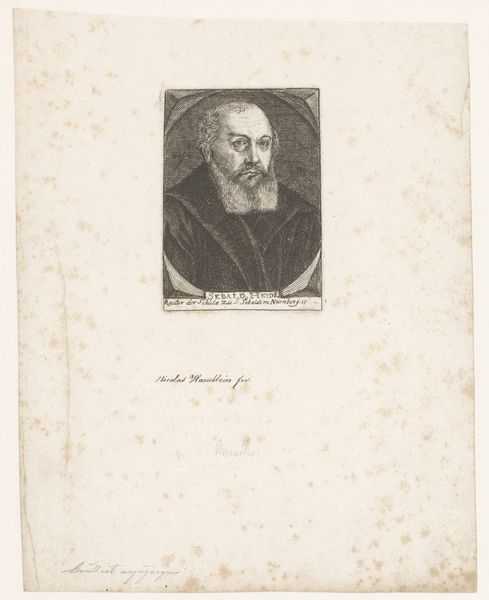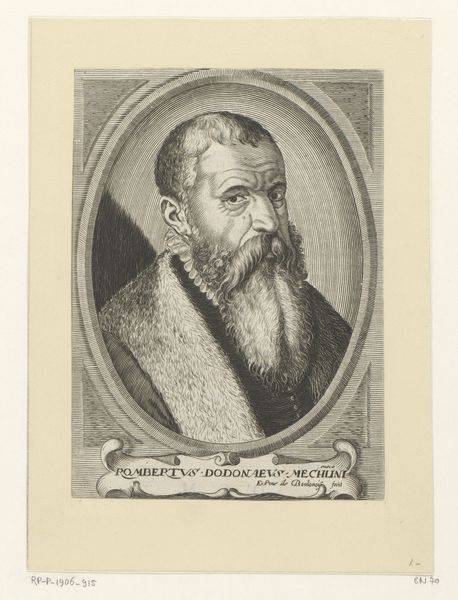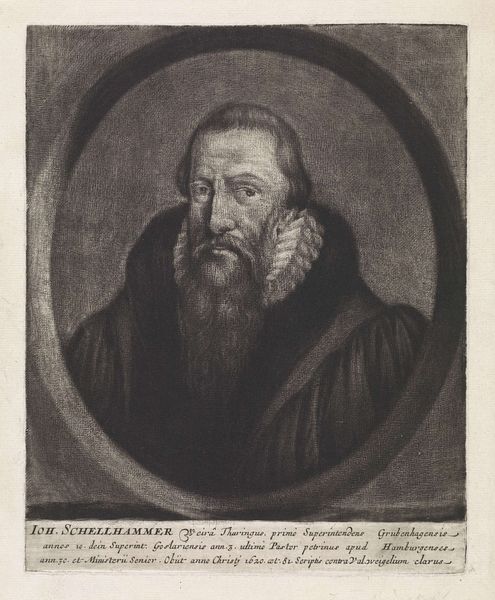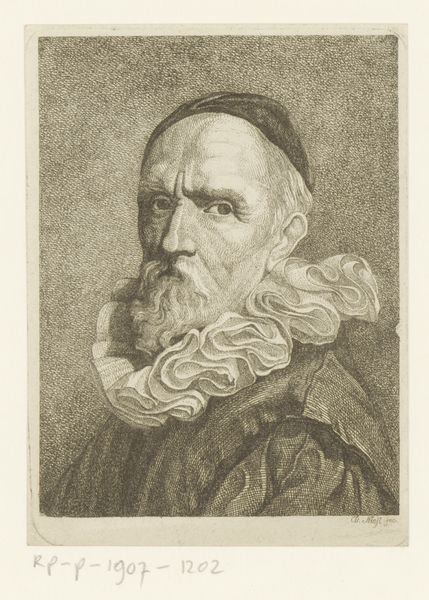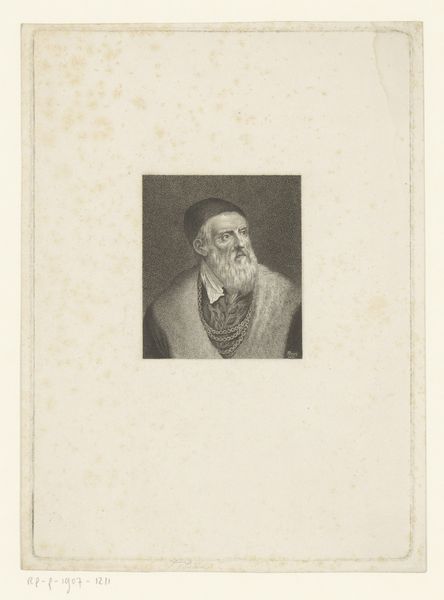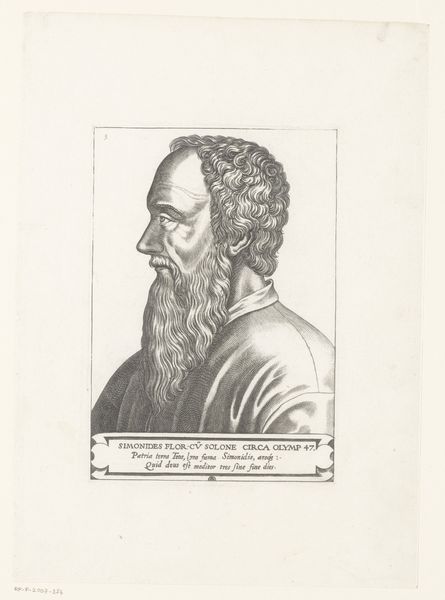
print, intaglio, engraving
#
portrait
#
16_19th-century
#
neoclassicism
# print
#
intaglio
#
charcoal drawing
#
portrait drawing
#
italian-renaissance
#
engraving
Dimensions: height 263 mm, width 174 mm
Copyright: Rijks Museum: Open Domain
This print of Tintoretto was made by Louis Jean Désiré Delaistre, sometime in the 19th century. It's a mezzotint, a printmaking technique that allows for rich tonal range. Think about the labor involved: the plate would have been roughened meticulously with a tool called a rocker, creating a surface that would print solid black. The artist then burnished and scraped the plate to create lighter areas, building up the image from dark to light. Look closely and you'll see the almost velvety texture that results from this demanding process. Mezzotint was often used for reproducing paintings, making art accessible to a wider audience. In this case, Delaistre has translated the painterly qualities of Tintoretto's portrait into the language of print, demonstrating his mastery of the medium. He's not just copying, but interpreting, transforming one material into another. By understanding the materials and processes behind this print, we can appreciate the skill and artistry involved, and recognize its place within a broader history of creative production.
Comments
No comments
Be the first to comment and join the conversation on the ultimate creative platform.
